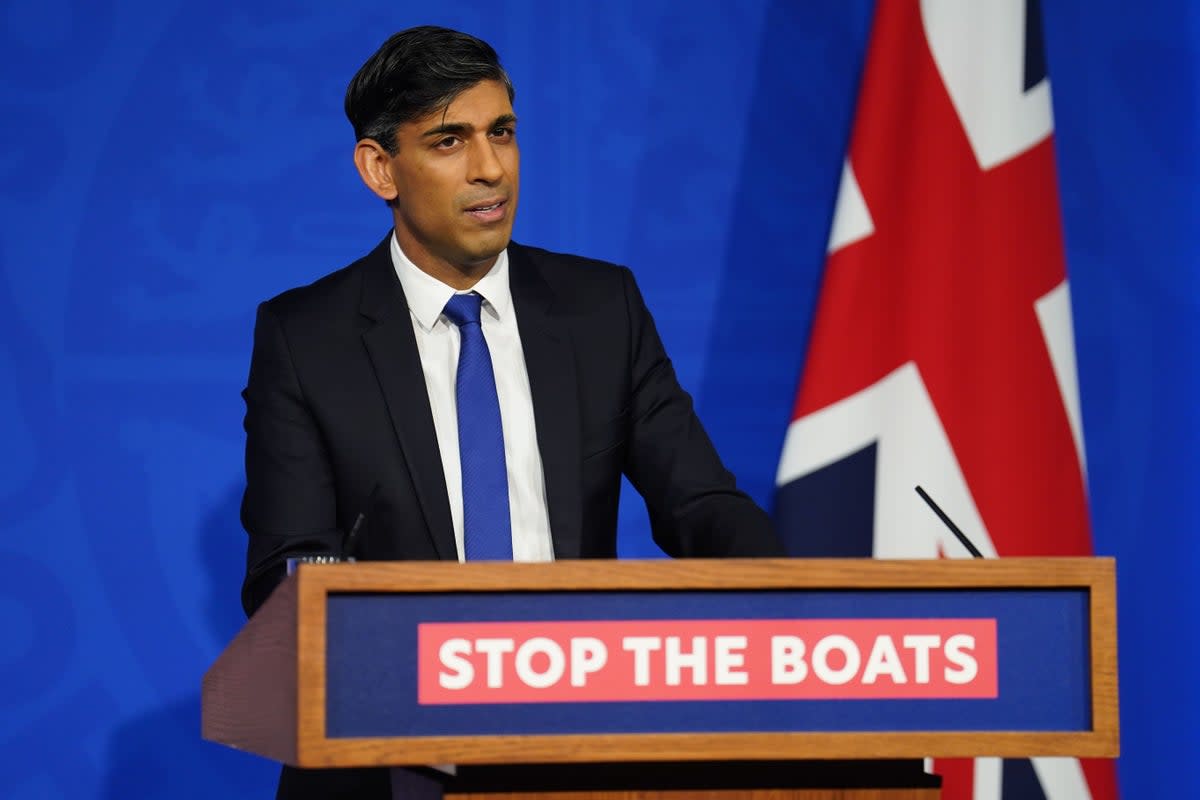Rishi Sunak now almost as unpopular as Conservative Party, poll finds

Rishi Sunak is now almost as unpopular as his party after a year of deteriorating polling numbers.
Having entered Downing Street considerably more popular than the wider Conservative Party, 52% of voters now say they have an unfavourable view of the Prime Minister, according to a poll published by Ipsos UK on Thursday.
At the start of the year, 39% of voters told Ipsos they had an unfavourable view of Mr Sunak, compared to 51% saying the same about the Conservative Party.
The figure for the wider party has barely changed, rising slightly to 54% in November, while Mr Sunak’s favourability rating has collapsed.
Keiran Pedley, director of politics at Ipsos, said: “In January, Rishi Sunak held a net favourability rating of minus 9 whilst the Conservative Party stood at minus 26. Today Mr Sunak’s stands at minus 28 and the Conservative Party minus 33.
“A year of public concern about the cost of living, NHS and immigration now means Mr Sunak is almost as unpopular as the party he leads as he grapples with how to turn their collective fortune around in 2024.”
The news comes as Mr Sunak seeks to assert his authority over a party divided over the issue of deporting asylum seekers to Rwanda and faces questions about whether failing to pass new legislation on the policy would spell the end of his premiership.
Thursday’s Ipsos poll found just 21% of people now say they have a favourable view of the Conservative Party, putting it fourth behind Labour, the Greens and the Liberal Democrats.
Mr Sunak’s personal ratings give him the lowest net score of the 10 frontline politicians Ipsos asked voters about.
Some 30% of people said they had a favourable view of Labour leader Sir Keir Starmer, while his deputy Angela Rayner had a favourability score of 27%.
Among 2019 Conservative voters, less than half said they had a favourable view of the Prime Minister while 32% said they had a negative view of him.
The Ipsos poll was conducted between November 24 and 27, and surveyed 1,066 British adults.


